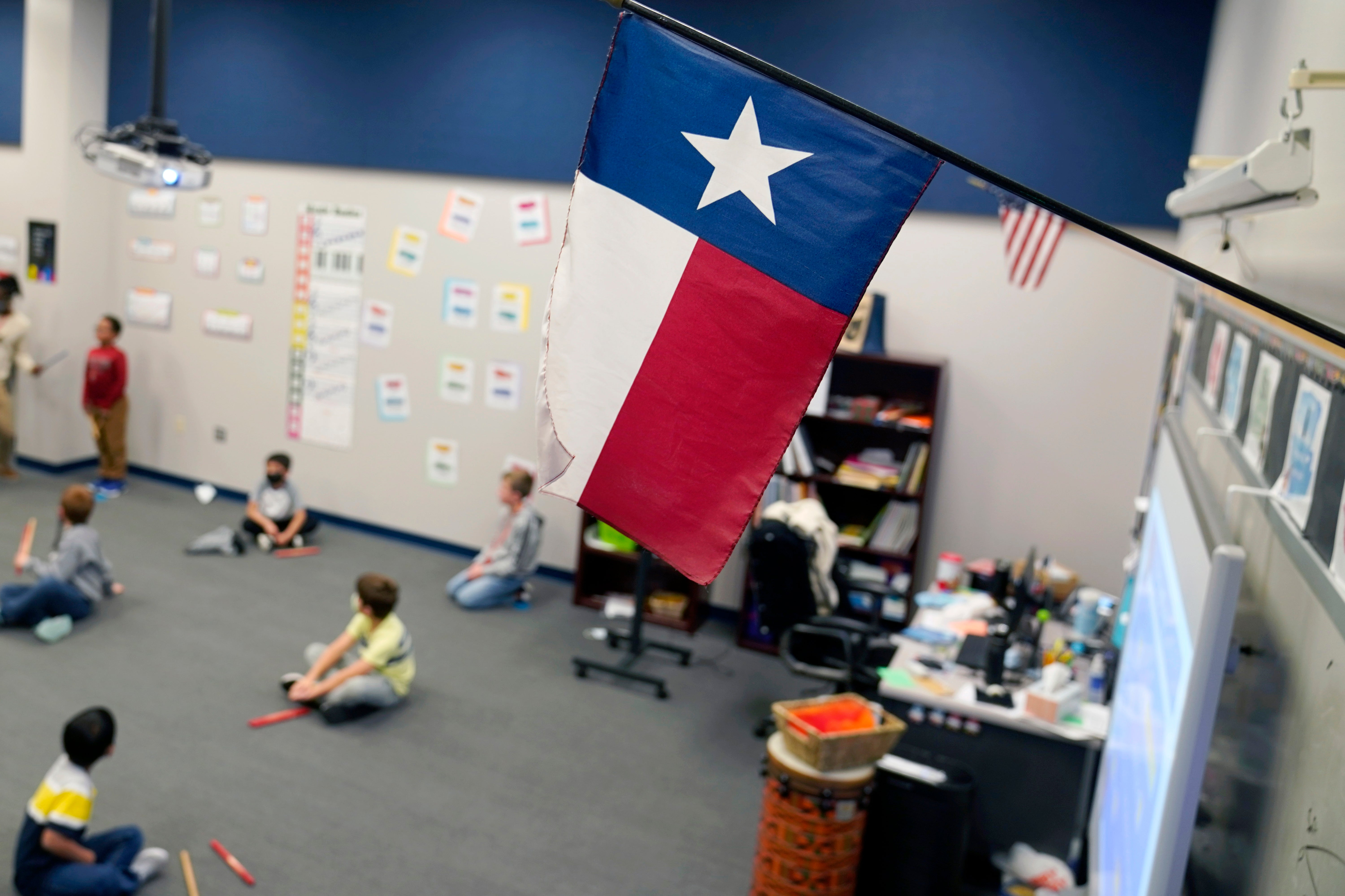Texas officials vote on adding the Bible to language arts curriculum
The controversial proposal has sparked a fierce debate among parents and educators
Your support helps us to tell the story
From reproductive rights to climate change to Big Tech, The Independent is on the ground when the story is developing. Whether it's investigating the financials of Elon Musk's pro-Trump PAC or producing our latest documentary, 'The A Word', which shines a light on the American women fighting for reproductive rights, we know how important it is to parse out the facts from the messaging.
At such a critical moment in US history, we need reporters on the ground. Your donation allows us to keep sending journalists to speak to both sides of the story.
The Independent is trusted by Americans across the entire political spectrum. And unlike many other quality news outlets, we choose not to lock Americans out of our reporting and analysis with paywalls. We believe quality journalism should be available to everyone, paid for by those who can afford it.
Your support makes all the difference.Texas public schools could use teachings from the Bible in lessons as an option for students from kindergarten through fifth grade under a proposal that drew hours of testimony Monday and follows Republican-led efforts in other states to incorporate more religious teaching into classrooms.
Teachers and parents gave impassioned testimony for and against the curriculum plan at a meeting of the Texas State Board of Education, which is expected to hold a final vote on the measure later this week.
The curriculum — designed by the state's public education agency — would allow teachings from the Bible such as the Golden Rule and lessons from books such as Genesis into classrooms as part of revised English language and arts materials. Under the plan, it would be optional for schools to adopt the curriculum though they would receive additional funding if they did so.
Some complained that the proposal contradicts the public school mission.
"This curriculum fails to meet the standard of an honest, secular one," educator Megan Tessler said. "Public schools are meant to educate, not indoctrinate."
Others strongly backed the idea.
"Parents and teachers want a return to excellence," Cindy Asmussen, one of those testifying, told the panel. "Stories and concepts in the Bible have been common for hundreds of years," and that, she said, is a core part of classical learning.

Education officials were expected to vote Friday on whether public schools would be given the option to teach the curriculum.
The proposal to incorporate religious teaching in Texas public schools mirrors a similar trend elsewhere in the country. In Oklahoma, state officials are seeking to include the Bible into public school lesson plans. In Louisiana, a federal judge recently quashed a requirement to have the Ten Commandments displayed in all public classrooms.
Educators, parents and advocates weighed in at the State Board of Education's final meeting of the year, where many opponents argued that the proposal's emphasis on Christian teachings would alienate students of other faith backgrounds. Those in favor testified that it'll give students a more holistic educational foundation.
Religious experts and the Texas Freedom Network, a left-leaning watchdog group that monitors the state's education board, said the curriculum proposal focuses too much on Christianity and dances around the history of slavery.
The program was designed by the Texas Education Agency earlier this year after passage of a law giving it a mandate to create its own free textbook. Republican Gov. Greg Abbott has publicly supported the new materials.
Republican lawmakers in Texas have also proposed displaying the Ten Commandments in classrooms and are likely to revisit the issue next year.

Join our commenting forum
Join thought-provoking conversations, follow other Independent readers and see their replies
Comments